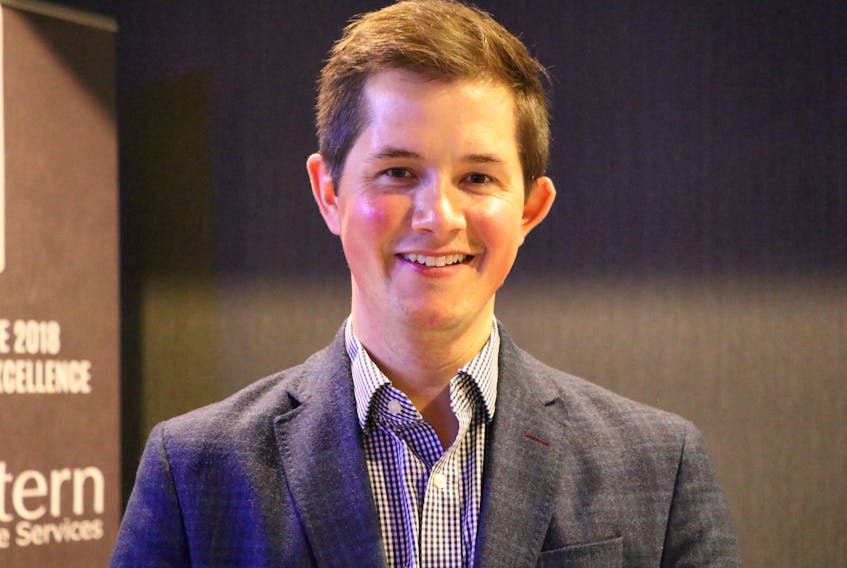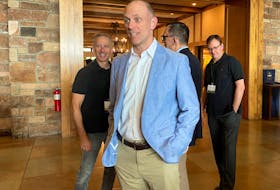As the baby boom generation moves further into retirement, millennials will make up the majority of the workforce in Canada.
On the surface, that may not appear to be good news for employers looking to hire in the coming years — millennials have been widely branded as a soft and self-centred generation.
But, according to one expert, the key for employers to finding good workers is to understand how millennials have become the way they are and how best to communicate with them.
“When I look at the research on how people older than me feel about my generation, I like to say millennials are probably the worst brand of any generation,” said David Coletto, a marketing research leader and expert on millennials.

“And that pollutes, in a way, how people approach us. If you are in your 50s and you have to deal with these kids, if you view us as a bunch of lazy, entitled narcissists, that’s going to affect how you interact. So good communication requires trust, and I think there’s always been a lack of trust across generations, but it seems to be greater now than it ever has been.”
Coletto, 36, the CEO of Abacus Data in Ottawa, spoke during the Newfoundland and Labrador Construction Safety Association’s annual conference on Thursday. His presentation, called “Training Millennials,” focused on how companies can understand millennials and how managers can better engage and empower them to be more productive employees.
“The construction sector, the trades generally, are seeing significant generational change in their workplace and there’s the challenge of recruiting young people into the trades,” Coletto said. “But generally speaking, when you talk about safety and creating safe workplaces, how you communicate, how you design programs, how you get that next generation of employee to think about these issues is really important. If you are an employer, a manager or someone who just works with these companies, getting a little bit of understanding of how my generation might be slightly different is important.”
According to Coletto, millennials — people born between 1980 and 2000 — number 9.5 million in Canada, which is about 27 per cent of the country’s population.
In Newfoundland and Labrador, the estimated number of millennials is 120,800, which is about 23.2 per cent of the province’s population.
Coletto said millennials are the most culturally diverse, most tech savvy, most educated and most travelled generation in history.
To connect with millennials, companies need to understand them.
“First of all, everyone is different, but there are tendencies that explain the millennial experience,” he said. “How we were raised, the breaking down of hierarchy (in the family), the idea we are friends with our parents, and therefore we kind of see our employer as friends.
“But then there is the role technology plays in all of this. And it is to recognize how reliant we’ve become on digital devices and how connected and almost addicted we are to those. So, if you are an employer looking to recruit, retain, communicate, teach us, you have to understand those differences, and not just understand it, (but) people need to open their minds a little bit, and that’s not to say you have to change everything, but at least be cognizant and aware of the changes that are happening.
“What matters as much as the how you communicate is the tone of that communication.”
Colette noted that many people under the age of 35 do not seek out news or information about what is going on in the world around them, but wait for the content to come to them. He said many millennials do not watch live television, listen to live radio or read a newspaper.
“Instead we are waiting for this content to be fed to us on our device,” he said. “Some of us don’t know what is going on in the world because we are not following journalists, or none of our friends are following journalists and so they are not sharing news content into our feed.”
In a survey his company conducted last year, Colette said, 85 per cent of people between 18 and 29 said they check Facebook every day, and 43 per cent check Instagram every day.
“So, social media is the best way to reach (millennials), the best way to motivate us,” he said.
“The point here is why are we so addicted to our device? In your business, in construction, it is hard to get us to put that device down. One of the reasons is because every critical thing, our complete attachment to the world, happens through that device. Facebook is how we keep up with what’s going on. Not all of us are on it, not all of us use it as much as (as others), but it is still the best way to connect and communicate with us.”
But addiction to mobile devices is not unique to millennials, he noted. It is a problem for people of all ages.
“There’s more and more research that does say that people generally, not just millennials, not just young people, are becoming addicted to these devices,” he said. “And so with any addiction, you need to deal with it and figure out how to manage it, but in a workplace that doesn’t allow you to do that on the job — and construction is certainly one of those — as a manager, as an employer you have to figure out how you do manage that addiction. And I don’t know if it’s feasible or possible, but having a device break is something that I think you are going to find more and more employers having to integrate. You got your union break, your smoke break and maybe you also integrate your device break.
“I don’t want to take responsibility away from millennials either, because we have a responsibly to be safe and make sure that if we are using heavy equipment or doing other things, we don’t fulfil that urge (to check devices). But even if we don’t check that device, we are still wondering what is on it. So are we as productive as we could be or are we not paying as much attention to the task at hand? Having a set break, knowing that in 20 minutes I’m going to be able to go off and my boss is not going to yell at me or judge me because I’m looking at my device, I think is the kind of — again I’m not an expert on HR or on managing workplaces — but that seems to me to be common sense as a place to go.”









